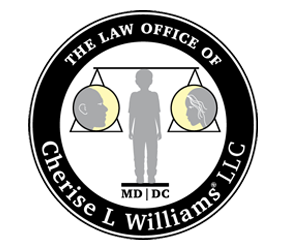Passport for Children: A Comprehensive Guide for Divorced, Separated, and Unmarried Parents in MD and DC
March 11, 2024
Planning an international vacation with children can be an exciting venture. However, for divorced, separated, or unmarried parents, the process of obtaining passports for minors can introduce a series of legal hurdles, particularly when it comes to parental consent. In Maryland (MD) and the District of Columbia (DC), these challenges can vary significantly, especially when considering the age of the child involved. This guide aims to illuminate the path for parents navigating this process, emphasizing the differences in requirements for children under and over 16 years old, and offering solutions for potential obstacles.
Passport Application for Minors Under
- Form DS-11 and Parental Consent
All minors under 16 require both parents' consent to apply for a passport, necessitating the completion of Form DS-11. This form must be submitted in person, with both parents present. In cases of divorce or separation, this requirement underscores the importance of joint legal custody agreements. Parents with joint legal custody must adhere to their agreement by obtaining the consent of the other parent. Without this consent, one may need to seek court intervention to proceed with the passport application.
- Court Orders and Legal Custody
For parents with a court order for joint legal custody, the law is clear: the consent of both parents is a must for children under 16. If one parent refuses consent without valid reasons related to the child's best interest, the other parent may need to pursue legal action to ensure the child's travel rights.
Minors Over 16: A Different Landscape
For children over 16, the process is somewhat streamlined. While they still need to apply in person using Form DS-11, the requirement for parental consent is relaxed. At least one parent or guardian must demonstrate awareness of the passport application, which can be shown by their presence or a signed note.
- Planning Ahead: Notice and Consent
When planning a trip, especially in complex family dynamics, giving the other parent ample notice is crucial. Ideally, several months' notice should be provided, allowing time for any necessary court proceedings if consent cannot be obtained amicably. This foresight is essential to avoid last-minute complications and potential disappointments.
- Emergency Passport Options
In scenarios where time is of the essence or when one parent is unresponsive, denying consent without just cause, or their whereabouts are unknown, emergency passport options may be available. For parents without a formal court order, these options can be a lifeline, allowing for the application to proceed under special circumstances, such as using Form DS-5525 to explain exigent situations.
Handling Difficult Scenarios
- Unknown Whereabouts: When one parent's location is unknown, documentation of efforts to locate them, paired with Form DS-5525, can facilitate the application process.
- Unresponsive or Denying Consent: If a parent is unresponsive or denies consent for reasons not in the child's best interest, seeking legal counsel is advisable. Court intervention may be necessary to protect the child's right to travel.
Tips for a Smooth Process
1. Start Early: Begin the passport application process as early as possible to navigate any legal or consent-related hurdles.
2. Provide Notice: Give the other parent plenty of notice about travel plans, ideally months in advance, to allow for the resolution of any disputes.
3. Seek Legal Advice: In cases of disagreement or complex legal challenges, consulting with a family law expert can provide clarity and direction.
4. Explore All Options: Be aware of emergency passport options and the specific criteria they require, particularly if facing consent issues.
For divorced, separated, or unmarried parents in MD and DC, obtaining a passport for a minor requires careful navigation of legal requirements and a proactive approach to planning. By understanding the nuances of parental consent, especially in the context of joint legal custody, and preparing for potential challenges, parents can ensure a smoother process. Remember, the child's best interest should always be at the forefront of any decision-making process. With the right preparation and knowledge, securing a passport for your child can be a seamless step toward an exciting travel adventure. If you need help with all of your legal options, it is best to contact a law firm like The Law Office of Cherise L Williams at 240-499-8569.
More Posts

